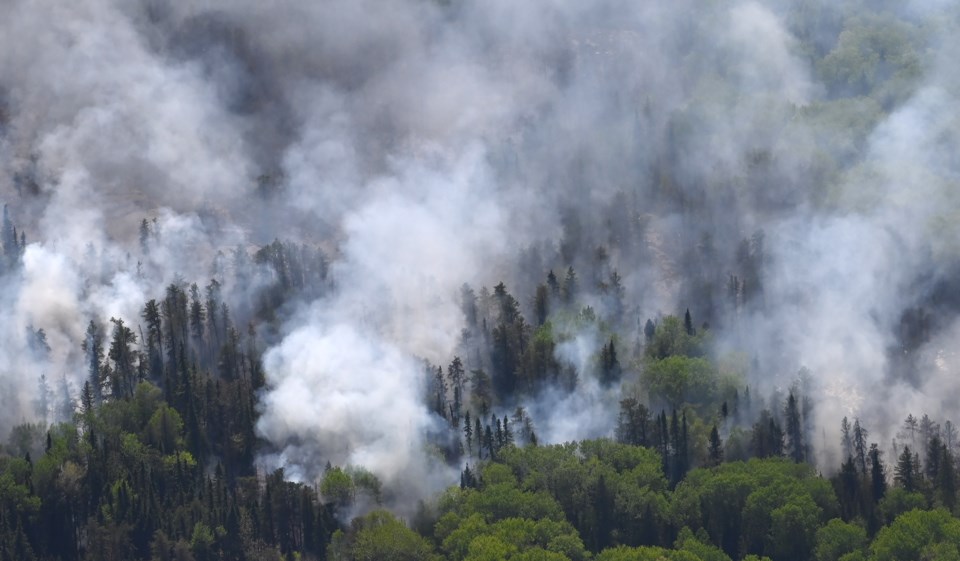THUNDER BAY — The smell of wildfire smoke lingered in the air in the Lakehead Friday morning and public health officials say people should pay close attention to air quality readings as forest fire season rolls on.
Special air quality statements remained in effect for a good portion of Northwestern Ontario on Friday. Thunder Bay had been under one since Thursday afternoon, but it was rescinded late Friday morning.
Still, Lee Sieswerda, the manager of environmental health at the Thunder Bay District Health Unit, said this could be like a trial run of what to expect this summer. He said public health officials are encouraging people to download air quality apps and monitor data — like the air quality health index — from national weather services.
“At a lower or moderate (air quality) risk level, you might only be affected if you're at (a personally) higher risk — like if you have chronic diseases or the elderly, (the) immunocompromised, small children,” he said.
“And as the risk goes up, a broader cross-section of the population could be affected.”
The index rates a location’s air quality on a scale of one to 10-plus, with air quality worsening as numbers rise.
Thunder Bay was sitting at a four — or moderate — as of late Friday morning.
Air quality statements from Environment Canada remained in effect from just west of the city to the Manitoba border and north to areas like Sandy Lake. From the Lakehead west to Fort Frances and north to Sioux Lookout, the national weather service said the smoke was expected to move out Friday evening.
For Dryden and west to the Manitoba boundary and points north, Environment Canada said the smoke was forecast to “affect the area today and possibly into Saturday for some locations.”
“You may experience mild and common symptoms such as eye, nose and throat irritation, headaches or a mild cough,” Environment Canada said. “More serious but less common symptoms include wheezing, chest pains or severe cough.”
“If you think you are having a medical emergency, seek immediate medical assistance.”
Sieswerda said even if you can’t actually smell the smoke, it can still be affecting you.
“Even though they might not have a scent to you, they can still cause respiratory problems,” he said.
Sieswerda said under worsening air quality conditions, people should generally reduce the strain of any outdoor activity, or, if you’re particularly vulnerable, to remain indoors with doors and windows closed.
“The higher the risk, the more you're going to have respiratory problems, which can lead to negative health effects,” he said.
As the summer continues and the risk of wildfires, either in the region or elsewhere in Canada or the U.S., is still present, Sieswerda said keeping on top of air quality is important.
“Just like in the winter, you check what the temperature is going to be when you go outside, I would suggest that people … if they know there's going to be air quality issues, they should follow it along on the app and pay attention to those special air quality statements.”
